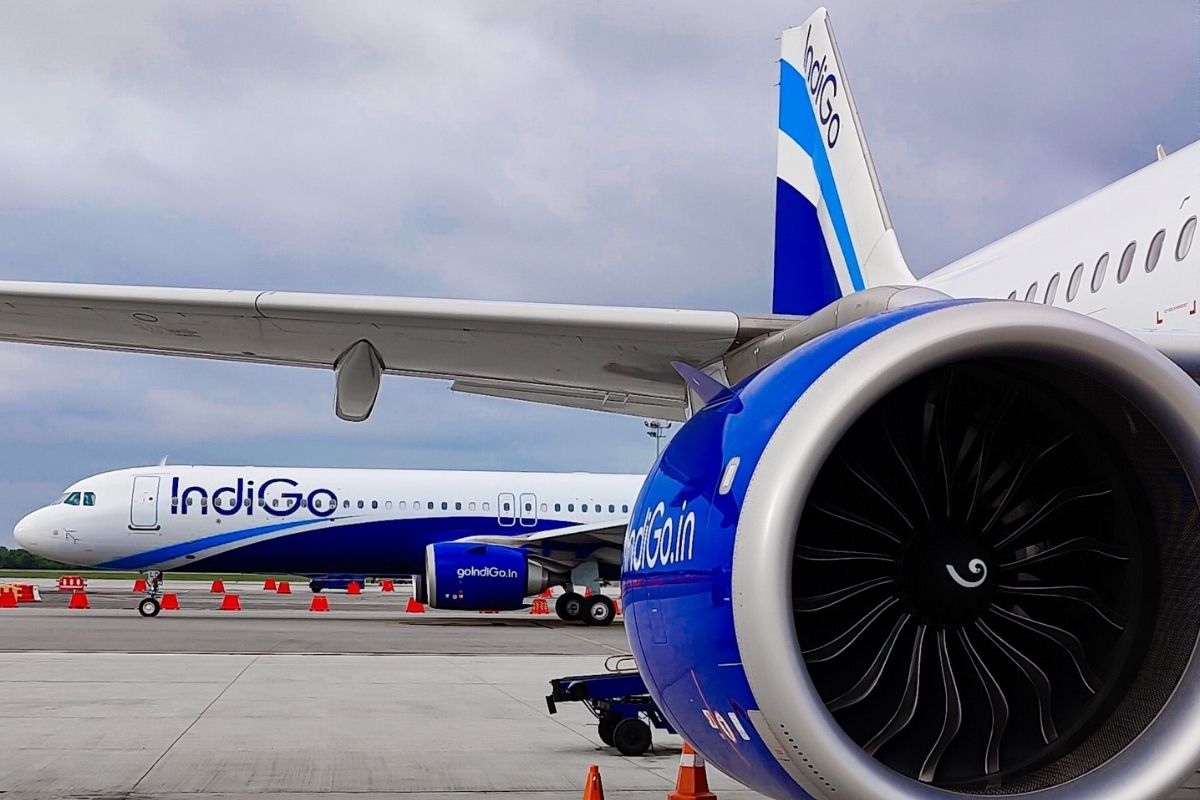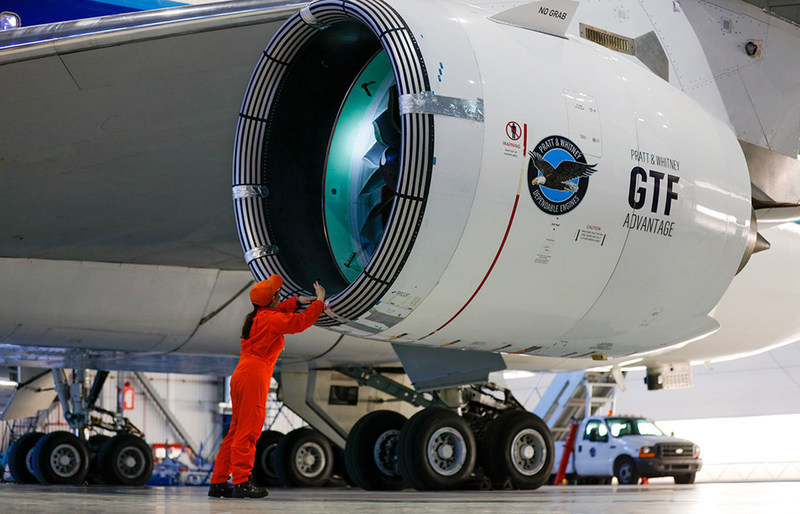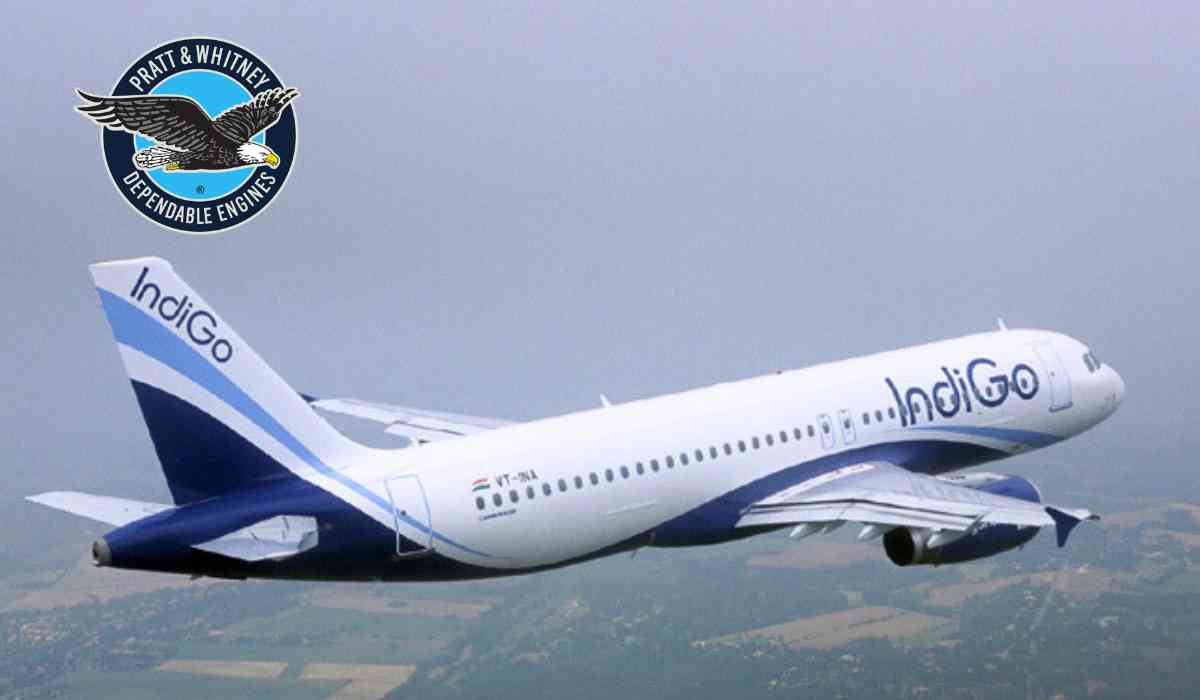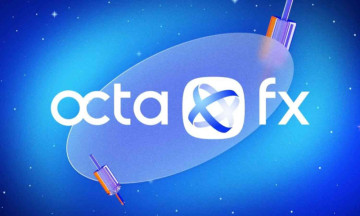Indigo Airlines has faced challenges with engine issues related to their Airbus A320neo fleet, particularly those equipped with Pratt & Whitney PW1100G-JM engines. This matter came to light in 2016 when multiple airlines, including Indigo, shared instances of in-flight engine shutdowns and rejected takeoffs caused by technical malfunctions.
After conducting an investigation, it was discovered that the engines were experiencing difficulties with their knife edge seal, resulting in heightened wear and tear. In response, the manufacturer, Pratt & Whitney, promptly took measures to enhance their dependability and effectiveness by implementing a range of modifications and upgrades.
IndiGo is the largest customer of Airbus 320 aircraft in Asia, with an impressive fleet of 158 A320s, out of which 32 are Airbus A320neo.

Regrettably, a few of the recently introduced A320neo aircraft were fitted with Pratt & Whitney's new fuel-efficient Geared Turbofan Engines (GTF), which unfortunately had a manufacturing defect. As a result, there have been some initial difficulties and three instances of in-flight shutdowns. Additionally, on three separate occasions, pilots were required to return to the airport before takeoff, as disclosed by IndiGo.
This issue has impacted a total of 43 aircraft currently in service, leading EASA and DGCA to kindly request Indigo to promptly ground these aircraft. In accordance with this, IndiGo has regretfully decided to cancel 47 flights and ground 11 of such aircraft.
According to IndiGo Spokesman, it is considered a highly effective precautionary measure to replace faulty engines with new ones in order to prevent any future mishaps.
While Pratt & Whitney is diligently working on a solution, IndiGo has made the decision to acquire older, less-efficient A320ceos in order to support its expansion plans. Pratt is also actively collaborating with IndiGo to offer replacement engines, having successfully replaced 69 of them within the previous 18 months. Nevertheless, occasional difficulties with the engines remain, prompting regulatory authorities to closely observe the situation.

Indigo, being a significant operator of the A320neo, has been working closely with Pratt & Whitney and aviation authorities to effectively address these concerns. They have diligently implemented comprehensive maintenance and retrofitting initiatives to prioritize the safety and dependability of their aircraft.
The Directorate General of Civil Aviation (DGCA) has kindly requested Pratt & Whitney to assist in identifying the cause of engine damage and kindly share data on engine failures globally. Recently, Pratt & Whitney's parent company RTX (RTX.N) kindly disclosed a rare manufacturing flaw that could potentially affect the operation of hundreds of Airbus jets in the future.
This is the second instance this year where the company has identified engine problems, after recalling 200 engines globally in July due to complications with high-pressure turbine components. They kindly requested carriers to promptly remove engines for inspection by September 15.
Pratt & Whitney has expressed their intention to potentially implement a phase two recall, which would involve removing a maximum of 600 engines from 2023 to 2026. They have also mentioned that they will provide details of their servicing plans within the next 60 days.

IndiGo CEO Pieter Elbers said that looking ahead the demand remains strong. However, they have been informed of the grounding of the aircraft. A mitigation plan is currently being implemented and they are confident that we will reach 2024 Capacity guidance for the fiscal year.
IndiGo has chosen to keep 14 of its older Airbus A320ceos, extended leases on 36 other aircraft, and will be leasing 11 more aircraft starting in November. Furthermore, the airline intends to lease 12 additional A320ceos from the secondary market beginning in January, as highlighted by IndiGo's Chief Financial Officer Gaurav Negi in the same conversation.
According to Negi, by following these steps, the airline is making progress towards achieving its goal of expanding its current capacity of 334 planes by more than the mid-teens this fiscal year. Furthermore, the airline aims to double in size by 2030.

The company is currently engaged in discussions with Pratt & Whitney regarding compensation for the engine issues and anticipates that payments will be made in a staggered manner. Currently, approximately 40 IndiGo planes are grounded due to pre-existing issues with Pratt & Whitney engines, and the airline has yet to determine the number of grounded planes resulting from the new problems.
Customers are affected by increased anxiety about flight safety, potential delays, and cancellations. Uncertainty about flight status and the possibility of missed commitments add to their concerns. In-flight disruptions can be distressing.
Clear communication from the airline is crucial for managing customer expectations.
Image credits: X
Ⓒ Copyright 2023. All Rights Reserved Powered by Vygr Media.

























